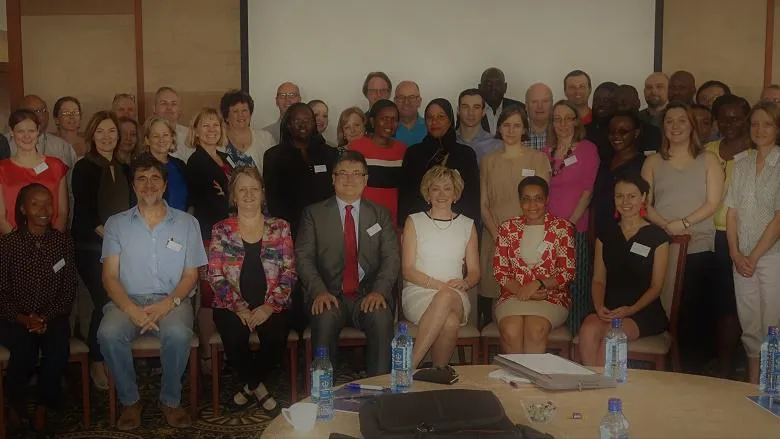15 February 2018
PRECISE network launched
Will Richard, Communications & Engagement Officer
King’s will establish a pregnancy cohort of 12,000 women across Africa to better understand placental disorders.

Last year the RCUK Global Challenges Research Fund awarded Professor Peter von Dadelszen, School of Life Course Sciences, £8 million to set up a global pregnancy research network with partners across Africa. On the 29th and 30th January the PRECISE network (PREgnancy Care Integrating translational Science Everywhere) was officially launched in Nairobi with a full team of co-investigators from across the UK and Africa.
PRECISE, a partnership of 10 universities led by King’s College London, will establish a pregnancy cohort of 12,000 women across East, West and Southern Africa. Researchers will collect biological samples and information about patients’ lives, contexts and stories to build a unique and comprehensive data set which can then be used to better understand placental disorders. Of particular interest are preeclampsia, stillbirth and fetal growth restriction as an estimated 23,000 women and one-and-a-quarter million babies (both before and after birth) die of these complications in Africa every year.
Although it is well-understood how and why placental disorders occur in more economically developed countries little is known about what causes them in sub-Saharan Africa. This is especially complex as women in Africa often have limited access to medical facilities and face many other challenges: inadequate diets that change seasonally, chronic infections such as HIV or malaria, acute infections like Ebola, restricted autonomy and life in communities that are prone to flooding or drought.
PRECISE will run until December 2021 and by collecting holistic data, building a bio repository and developing local research leaders aims to increase the capacity for science in this field. The network hopes that a coordinated, international programme will be able to implement novel and effective methods to assist with the diagnosis and management of placental disorders across sub-Saharan Africa.
